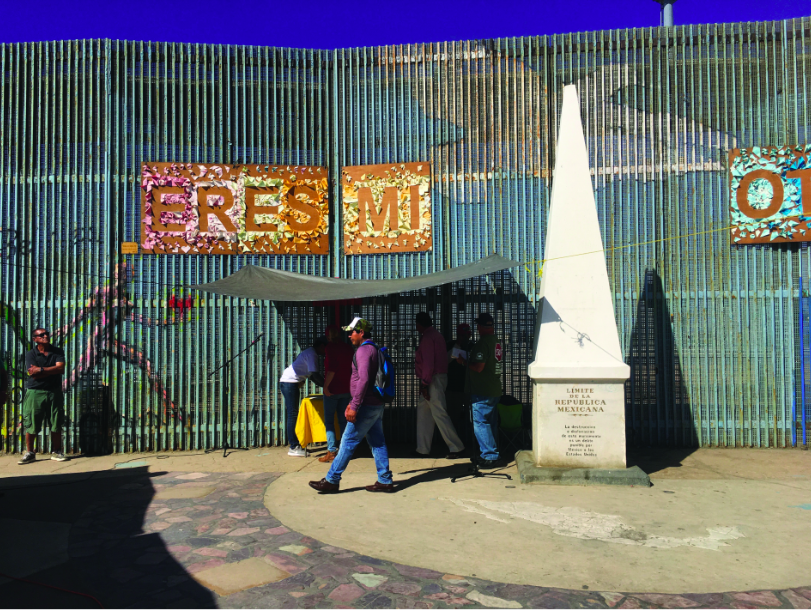Failure to Ease Asylum Policies Worsens Illegal Border Crossings
Restrictions cause danger
November 8, 2019
In the past 10 years, the number of people seeking asylum in the United States has skyrocketed— from 5,000 people in 2008 to more than 97,000 in 2018, a 2000% increase according to Time. Deteriorating conditions in many countries around the world has led to this dramatic increase. With deteriorating conditions comes desperation to reach the life that many migrants feel is their only way to safety.
The United States has a responsibility to update and maintain its process for migrants seeking asylum, as well as ease restrictions on granting asylum. Failure to reevaluate this process as well as existing limits will drastically increase the number of people willing to cross illegally and the United States, endangering their lives after all but being denied their universal human right to petition for asylum.
Border agents at the San Diego border estimate that they apprehend over 160 people every day illegally crossing and the United States—only in San Diego county. Desperation to enter the United States, both legally and illegally, is high as people search for opportunities, refuge, and resources.
What currently exists is a broken system of asylum application with rules that change daily. The United Nations Declaration of Human Rights grants every person the right to apply for asylum from a country when they are facing persecution. A September Supreme Court ruling upheld the Trump Administration’s plan to deny migrants the ability to apply for asylum if they had passed through another country on their way, meaning that migrants must now apply for asylum in Mexico before seeking asylum from the United States.
For those able to apply, the system at the border in Tijuana, Mexico is housed in a single notebook. When they arrive in Tijuana, migrants add their name to the list and are assigned a number. At night, this notebook is returned to U.S. border patrol. Through word of mouth, a fluctuating number of numbers are called each new morning. If asylum seekers are not at the border wall when their number is called, they lose their spot in line. And this appointment is only to begin the asylum process; months of court dates await.
In response to this inefficient system, more and more migrants are risking their lives to cross the border illegally. A journey once undergone primarily by single Mexican men according to BBC, border patrol agents estimate that 50% of those apprehended are family units from Central America.
In response to these new regulations on applying for asylum, illegal immigration to the U.S. has drastically increased. Customs and Border Patrol reports that they apprehended 851,508 people crossing illegally between Southwest ports of entry in the 2019 fiscal year, compared to 396,579 in the 2018 fiscal year.
Crossing illegally is incredibly dangerous. Migrants set out on uncertain terrain on their own, or pay a coyote to shepard them across, become part of an enormous human trafficking industy that exists at the US-Mexico Border. With such limited ability to legally gain access to the country, these illegal and potentially dangerous routes are only increasing in popularity. In 2019 alone, over 340 migrant deaths have reportedly occurred while trying to illegally cross the border. And since 2014, there have been over 2,243 people reported missing while trying to cross.
Maybe half a mile from where the border wall just into the ocean, right behind a block of houses exists an opening in the wall— an open secret between Tijuana residents and U.S. border patrol with the understanding that desperate people will resort to desperate measures, and they would rather it happen there than in the merciless rip tides of the Pacific Ocean. Placing harmful restrictions on asylum seekers will not solve the problem of illegal immigration to the United States. Only through providing a safe, reasonable, and organized policies to those applying for asylum will stop the rapidly increasing illegal flow of people to the United States.
